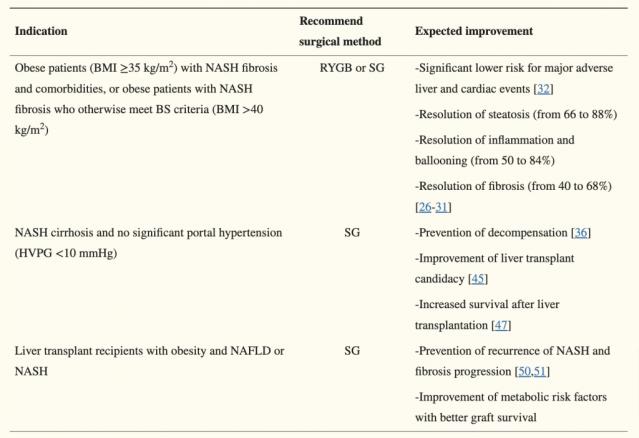In the face of rising obesity rates, nonalcoholic fatty liver disease (NAFLD) has emerged as a silent epidemic, affecting millions worldwide. This chronic condition, characterized by the accumulation of excess fat in the liver, can progress to more severe forms, such as nonalcoholic steatohepatitis (NASH), fibrosis, and ultimately, cirrhosis. As the burden of NAFLD continues to grow, individuals and healthcare professionals alike are seeking effective treatment strategies, with bariatric surgery emerging as a promising option.
Bariatric surgery encompasses various procedures aimed at promoting weight loss by altering the gastrointestinal anatomy, thereby modifying the physiology of digestion and nutrient absorption. While initially developed to address obesity and related metabolic disorders, emerging evidence suggests that bariatric surgery can exert profound effects on liver health, making it a compelling therapeutic avenue for Nonalcoholic Fatty Liver Disease management.
The Spectrum of Nonalcoholic Fatty Liver Disease (NAFLD): A Complex Condition
NAFLD is a multifaceted condition that encompasses a range of liver abnormalities, from simple steatosis (fat accumulation) to NASH, which involves inflammation and liver cell damage. In some cases, NASH can progress to fibrosis, a condition characterized by the formation of scar tissue in the liver, and ultimately, cirrhosis – the irreversible end-stage of liver disease.
The underlying causes of NAFLD are complex and multifactorial, involving an intricate interplay between genetic, metabolic, and environmental factors. The primary risk factors for developing NAFLD include obesity, insulin resistance, dyslipidemia, and type 2 diabetes. These factors contribute to the accumulation of fat in the liver, triggering a cascade of events that can lead to inflammation, cell injury, and the progression to more advanced stages of the disease.
Bariatric Surgery: A Promising Treatment Approach for Nonalcoholic Fatty Liver Disease
Bariatric surgery has emerged as an effective treatment option for individuals with severe obesity and associated comorbidities. The bariatric procedures aim to modify the digestive system to induce significant weight loss by restricting food intake or altering nutrient absorption.
Common bariatric procedures include:
- Roux-en-Y Gastric Bypass
- Gastric Sleeve
- Adjustable Gastric Banding
- Biliopancreatic Diversion with Duodenal Switch
Bariatric surgery has shown to improve or resolve a variety of obesity-related conditions, such as type 2 diabetes, hypertension, sleep apnea, and cardiovascular disease, by achieving substantial weight loss. This has sparked interest in exploring the potential benefits of bariatric surgery for the management of NAFLD.
Can I Have Surgery With a Fatty Liver?
Yes, it is generally possible to have bariatric surgery even if you have Fatty Liver, but there are some important considerations:
- Severity of fatty liver: If you have mild or moderate fatty liver, bariatric surgery is usually considered safe. However, if you have advanced or severe fatty liver disease, such as cirrhosis or liver failure, the risks of surgery may outweigh the benefits. Your doctor will evaluate the extent of your liver disease.
- Weight loss before surgery: Many surgeons recommend losing some weight through diet and exercise before undergoing bariatric surgery, especially if you have fatty liver. This can help reduce the fat accumulation in the liver and improve liver function.
- Type of bariatric surgery: Different types of weight loss surgeries have varying impacts on fatty liver disease. Procedures like gastric bypass and sleeve gastrectomy tend to improve or resolve fatty liver more effectively than gastric banding.
- Monitoring after surgery: If you have bariatric surgery with fatty liver, your liver function will need to be closely monitored after the procedure. Weight loss can sometimes lead to a temporary worsening of liver tests before improving.
The key is to work closely with an experienced bariatric surgeon and hepatologist (liver specialist). They can assess your specific situation and determine if bariatric surgery is appropriate and which procedure may be best given your degree of fatty liver disease.
The Impact of Bariatric Surgery on Fatty Liver Disease
Numerous studies have demonstrated that the significant weight loss achieved through bariatric procedures can lead to remarkable improvements in liver health, including the resolution of steatosis (fat accumulation) and inflammation. One of the most significant benefits of bariatric surgery for NAFLD patients is the potential for disease regression or even resolution.
Several studies have reported that a substantial proportion of individuals with NAFLD who undergo bariatric surgery experience a reduction in liver fat content, inflammation, and fibrosis, with some achieving complete resolution of the condition. These improvements are particularly notable in patients with less advanced stages of the disease, such as simple steatosis or early-stage NASH.
The National Institutes of Health (NIH) guidelines for bariatric surgery include NAFLD as a potential indication for surgery in individuals with a body mass index (BMI) of 35 or higher, especially when other obesity-related comorbidities are present.
Conclusion
Fatty liver disease, particularly in the presence of other obesity-related comorbidities, can qualify as an indication for bariatric surgery. The significant weight loss achieved through bariatric procedures has been shown to improve liver health and potentially reverse the progression of Nonalcoholic Fatty Liver Disease. However, a thorough assessment of each patient’s unique circumstances is essential. Consider factors such as the severity of liver disease, overall health status, and individual risk factors associated with surgery.
If you are considering bariatric surgery to address obesity-related conditions, contact our compassionate patient coordinators at Jet Medical Tourism. They are dedicated to guiding you through the process, answering your questions, and helping you throughout the process. Start your journey towards better health today by contacting us.
Ready to Leave Behind the Challenges of Obesity?
Feeling exhausted from battling obesity and its health issues? Seize control and begin your journey to lasting weight loss and improved health through weight loss surgery in Mexico.
Contact us for further details and set sail on your journey to a healthier you!
The post Does Fatty Liver Qualify for Bariatric Surgery? appeared first on Jet Medical Tourism®.

